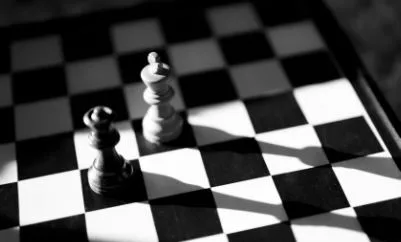Why Strong Chess Players Learn to Lose — and How It Accelerates Growth
Losing a game of chess can sting—especially for players who are ambitious, disciplined, and deeply invested in their progress. In a sport defined by precision and planning, defeat often feels like a personal failure. But beneath that discomfort lies one of the most powerful engines for improvement. The strongest players in the world don’t just accept losses—they study them, embrace them, and use them to uncover truths that wins often conceal. In fact, the ability to process defeat constructively is one of the clearest differences between plateaued amateurs and continually advancing competitors. This article explores why learning to lose in chess is not only necessary but transformational—and how the mindset around defeat shapes long-term mastery.
What Defeat Actually Teaches You
When a game ends in defeat, it opens a door that victory rarely does. Winning often masks errors—moves that were suboptimal, ideas that only worked because the opponent missed a chance. Losing, on the other hand, forces the player to confront the truth. It’s uncomfortable, but essential. Every defeat contains a lesson, and the most successful players are the ones who learn how to extract it without ego or avoidance.
Strong players don’t fear losing because they see it as a diagnostic tool. A loss provides a direct line to what isn’t working—whether it’s a flawed opening idea, a recurring tactical oversight, or a positional misunderstanding. These aren’t just technical points; they represent thinking habits that must be reshaped. The board becomes a mirror, and losing is the reflection that helps the player see clearly.
It’s also important to note that losing reveals emotional triggers: impatience, frustration, overconfidence. These reactions are rarely visible in games won easily, but they erupt under pressure. In this sense, defeat teaches more than just moves—it reveals character. Learning to manage emotional volatility is crucial for high-level performance, and that lesson only emerges when things go wrong.
The most effective players develop routines around their losses. They take notes, ask questions, compare their plans with the engine’s cold logic. They don’t bury the game and move on; they revisit it with curiosity. To them, each defeat is a data point in a larger pattern—and that pattern, once understood, can be corrected and rebuilt. Losing doesn’t feel good, but it’s one of the most honest forms of feedback a chess player will ever receive.
How Losing Shapes Strategic Thinking
Tactical errors can be fixed with repetition. But strategic understanding—why a position demands one plan over another—often grows only through painful trial and error. Losing teaches players to zoom out, to reevaluate their assumptions about structure, initiative, and long-term planning. It forces them to ask hard questions: Did I understand the nature of the position? Was I reacting or controlling the game? These reflections don’t surface during comfortable victories; they are forged in moments when things fall apart.
Over time, strategic resilience emerges. The player becomes less reactive and more anticipatory. They begin to recognize patterns not as isolated tricks but as tools for structuring the game on their terms. The confidence to pursue a long-term plan—even when under pressure—often develops from games that were lost through strategic hesitation or confusion. Losing shows you what you missed; it trains your mind to think two steps deeper next time.
At this stage of development, many players seek targeted help. Not just more puzzles or opening videos—but personalized insight into how they think. That’s where chess coaching online becomes especially impactful, as it offers guidance that bridges the gap between tactical skill and strategic comprehension. Coaches help players not only spot mistakes, but understand the flawed decision-making that led to them.
Ultimately, losing reshapes the player’s mental blueprint. It teaches them to look inward, to slow down, and to refine how they evaluate choices. The pain of defeat is temporary, but the clarity it produces—when used correctly—has lasting value. And it’s this clarity that transforms competent players into true strategists.
Self-Critique vs. Self-Sabotage
One of the greatest dangers after a loss is slipping into self-sabotage. It’s easy to confuse healthy reflection with harsh self-judgment. A critical mindset helps identify weaknesses; a destructive one only amplifies doubt. Strong players learn to walk this fine line—using losses as opportunities to recalibrate, not as evidence that they are failing.
The inner dialogue after a defeat matters more than most realize. Statements like “I always mess up under pressure” or “I’m just not a strategic player” can become mental blocks that persist long after the specific mistake is forgotten. These narratives grow stronger if not challenged. The goal of post-game analysis isn’t to assign blame, but to reconstruct thought processes and trace errors to their origins.
Structured environments can help players stay on the side of productive self-critique. For example, curated chess courses online often include model games and reflection prompts that guide learners toward objective evaluation rather than emotional reaction. This support turns analysis into a habit, not a punishment.
- Focus on what led to the error, not just the moment it happened.
- Avoid labels like “bad player” or “hopeless position”—they add no value.
- Reframe losses as feedback, not failure.
- Ask: What did I miss? What did I assume? What can I change?
Learning from defeat is not just about correcting moves—it’s about correcting mindset. Self-awareness, developed through repeated honest review, is the trait that separates players who rise from those who remain stuck. Every loss has two voices: one that tears down, and one that builds. The choice of which to listen to defines a player’s future.
Tools for Extracting Lessons from Losses
The ability to grow from defeat is not a vague talent—it’s a skill that can be developed through specific tools and habits. The strongest players aren’t just mentally tough; they’re methodical. After a loss, they know exactly what steps to take to turn frustration into clarity. Rather than closing the analysis window or walking away in disappointment, they treat the post-game process as part of their training.
One of the most effective tools is the structured post-game review. This involves not only checking the engine’s evaluation, but also annotating the game based on your thoughts during key moments. What did you expect your opponent to play? What were you calculating? Were you confident or guessing? This kind of self-analysis reveals much more than just which move was inaccurate.
- Annotate your games with your thoughts and intentions—not just the moves.
- Use engines after your own review, not before, to preserve original insight.
- Compare your plans with model games in similar positions.
- Discuss critical positions with stronger players or mentors.
Over time, this process builds pattern recognition—not just of tactical motifs, but of your own thinking habits. You begin to notice recurring weaknesses: perhaps you overextend in sharp positions, or you panic when the center is closed. These patterns, once identified, become the basis for focused correction. No video or book can replace this level of personal insight.
Losing is inevitable. The real question is what you do next. Equipped with the right tools, even a painful defeat can become a strategic breakthrough. What separates strong players from frustrated ones isn’t luck or talent—it’s what they choose to learn when things go wrong.
Even Grandmasters Lose — and Grow From It
One of the most persistent illusions among club-level players is that grandmasters are immune to failure. In reality, top-level chess is defined by razor-thin margins, constant recalibration, and frequent losses. The difference lies not in avoiding defeat, but in processing it with surgical clarity. When a grandmaster loses, they don’t collapse. They dissect.
Elite players know that every tournament offers lessons, especially when things don’t go their way. They track not just what failed but why. Was it preparation? Fatigue? A misunderstanding of the position’s nature? For them, the post-mortem is often more valuable than the game itself. The best are obsessed not with perfection but with progress—an attitude any serious player can adopt.
At the core of their growth is structured review and a long-term mindset. A single defeat becomes a note in a broader developmental arc. The lessons are cataloged, internalized, and revisited when needed. This is the true path for anyone wondering how to improve at chess, because lasting improvement is not about flawless execution—it’s about thoughtful recovery.
Grandmasters lose. Frequently. But they treat each loss as a contribution to their future success. That’s what sets them apart—not invincibility, but the capacity to transform failure into insight. And that mindset is fully accessible, no matter your current rating.
Losing Isn’t the End — It’s the Beginning of Mastery
In chess, defeat is not a detour from improvement—it’s part of the road. The strongest players aren’t those who never fall, but those who rise with more insight each time. Learning to lose well means learning to think clearly, evaluate honestly, and act deliberately in the face of discomfort. Every mistake offers a map. Every loss points to a lesson. The journey toward mastery is not paved with flawless games, but with resilient learning. If you’re willing to confront your defeats, you’re already doing what champions do. And that’s how real growth begins.





